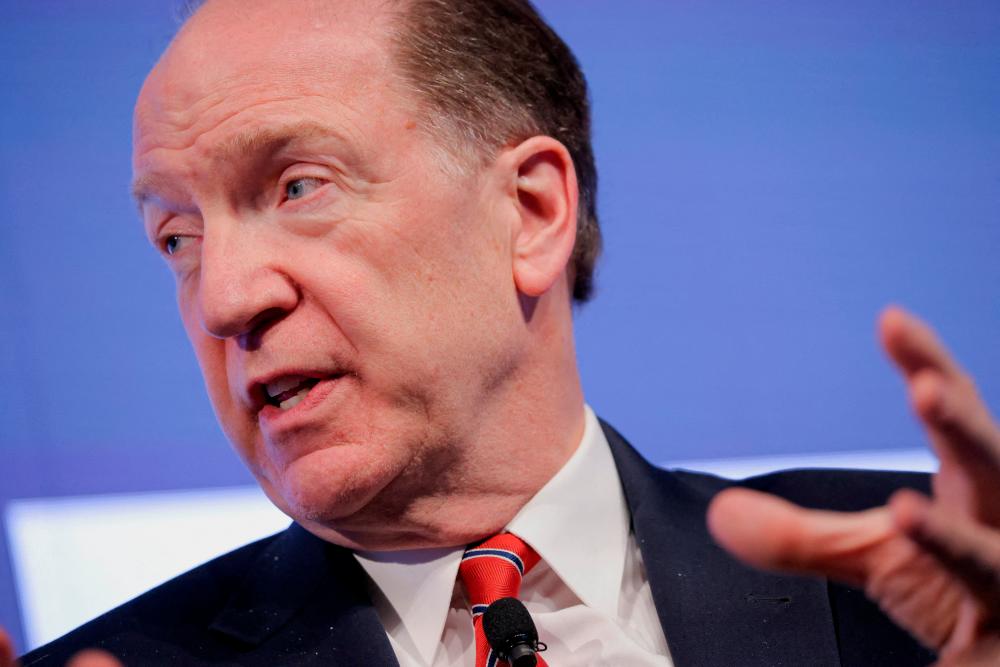WASHINGTON: The World Bank on Thursday (March 30) submitted a long-awaited reform plan that would boost annual lending to middle-income countries to fight climate change and other global crises by about US$5 billion (RM22 billion) annually while protecting the bank’s top-tier credit rating.
The bank said the “evolution road map” would be discussed with its Development Committee steering body on April 12, during the spring meetings of the World Bank and the International Monetary Fund, but discussions would continue on further measures to boost lending, including to the world’s poorest countries.
“The World Bank Group (WBG) must evolve in response to the unprecedented confluence of global crises that has upended development progress and threatens people and the planet,” the document said. It said action was urgently needed to meet poverty reduction goals and respond to accelerating global challenges such as climate change, pandemic risk and conflict.
The paper, which includes changes since a draft reviewed in January, lays out short-term actions and some points to be considered after the April meetings, the bank said.
The World Bank estimates that governments in developing countries and the private sector would need to spend US$2.4 trillion a year on average through 2030 to address climate change, conflict and pandemics, or about 6% of the total economic output of developing countries.
The United States, which is the bank’s largest shareholder and has been pressing the World Bank to take bolder action, had no immediate comment on the road map.
US Treasury Secretary Janet Yellen on Wednesday said the US nominee to succeed World Bank president David Malpass would be charged with accelerating progress on the reforms.
Malpass, who announced in February that he would leave his post by June 30, flagged the proposed boost in the financing capacity of the bank’s middle-income lending arm, the International Bank for Reconstruction and Development, in a speech in Niamey, Niger, earlier on Thursday.
He said the World Bank had doubled its financing for global public goods during his presidency, reaching US$100 billion from 2020-2022, and underscored his concerns about “unsustainable levels” of public debt in many developing countries.
More than half of the world's poorest countries were in or at high risk of debt distress, and their problems were mounting given higher interest rates and inflation that were leading to capital shortages, Malpass said.
As a result, governments needed to “plan for continued financial stress”, he said, calling for further efforts by developing countries to remove wasteful subsidies, improve public procurement and broaden their tax base.
In another development, Ajay Banga, the American pick to lead the World Bank, was the only candidate nominated for the position, the bank confirmed on Thursday, paving the way for his likely appointment in the coming months.
“In accordance with established procedures, the executive directors will conduct a formal interview with the candidate in Washington, DC, and expect to conclude the presidential selection in due course,” the bank said in a statement.
Under an unwritten arrangement, the United States has historically held the presidency of the Washington-based development lender, while the International Monetary Fund has been run by a European.
Banga, 63, was born in India and is a naturalised US citizen.
President Joe Biden announced his nomination last month to succeed Malpass, who is stepping away early from a presidency clouded by questions over his climate stance. – Reuters, AFP













